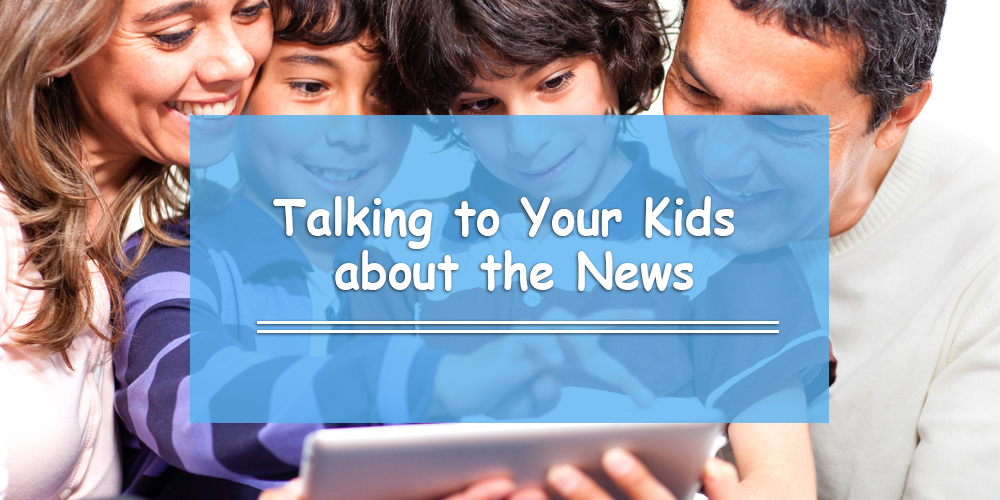Do you watch the news? Do you ever feel like the world is getting more upsetting?
It seems like there’s a new tragic event happening around the world every day. Natural disasters, terrorist attacks and wars continue to fill our news outlets. What’s worse is that our kids notice, and it is now nearly impossible to shield them from heartbreaking current events.
When big news like this breaks, it’s only natural for you to think about how to explain it to your kids. After all, they might be watching it with you on TV or even using social media to learn more and talk about it. Kids get access to all kinds of information online, and since most of it is geared towards adults, it is important for parents like you to get involved with what your kids watch and read online.
That said, here are four ways you can help your child make sense of the 24/7 news cycle.
1. Explain that the media isn’t always right.
Here’s a little secret about the news industry: a lot of it is inaccurate. The reason why is because a lot of news stations try to be the first source to cover news stories Because of this, reporters often make mistakes and official don’t always have the correct information. Furthermore, there are a lot of people who simply like to state their opinions.
This is especially why it is important to let your children keep this in mind whenever you talk to your kids about the news.
2. Discuss how to use social media.
Your children may know how to use certain social media platforms better than you do. After all, they grew up with it.
However, it comes to explaining the news, it’s important to point out the ‘social’ part in social media. Remembering that the media isn’t always right when they report information (see point #1), social media users amplify what the reporter writes or says in a video by sharing the piece with friends.
Mention to your children that, while sites like Twitter and Facebook do provide news, the information isn’t always accurate. Sometimes, they are just opinions that don’t always point the right information.
3. Encourage Them to Question Everything
One of the best things a child can learn at an early age is to question everything. As parents, it is important to raise children as critical thinkers in order to get them to learn and research independently. What they learn before, during, and after reading a news article or watching a news clip can get them better grades. That sounds good, right?
Right now, we are taught to simply consume information. Basically all you do in this case is sit in a chair and answering the question, “What is being said?” Instead, encourage your children to actively inquire by asking new questions like:
• What is the meaning of what I have read/watched?
• Why did the reporter cover this story?
• What predictions can I make based on the information in the article?
Don’t be afraid to ask them questions, too. Find out what they think about a certain news story and ask them if reporters are sensationalizing it. This way, you can find out more about what they think… and how they think.
4. Look for Trustworthy Sources
Encourage kids to use age-appropriate news sources, as the majority of the news is meant for adult audiences. If you have a younger child, make sure the sources are kid-friendly; one example of this is (for English speakers) is the Tween Tribune.
Conclusion
We get access to so much information nowadays. There’s so much of it that the only way we can process it is at the surface level. When news events create anxious feelings inside of us, we start reacting a lot more strongly and do a lot less critical thinking. We analyze less about things like credibility and accuracy.
When you’re talking to your kids about the news found online, make sure you tell them to continuously do their own research on the subject and to use their online sense.
Source: Common Sense Media


